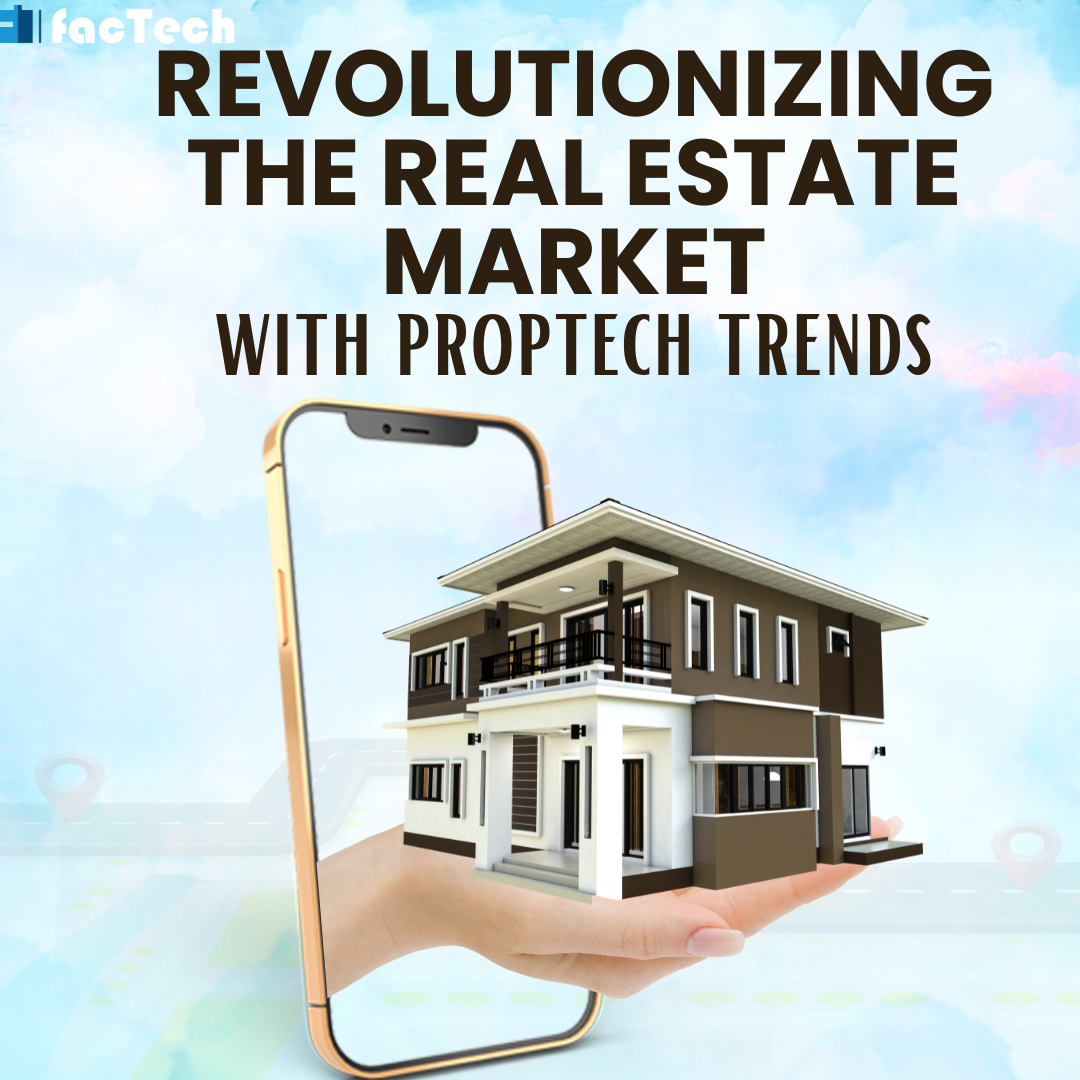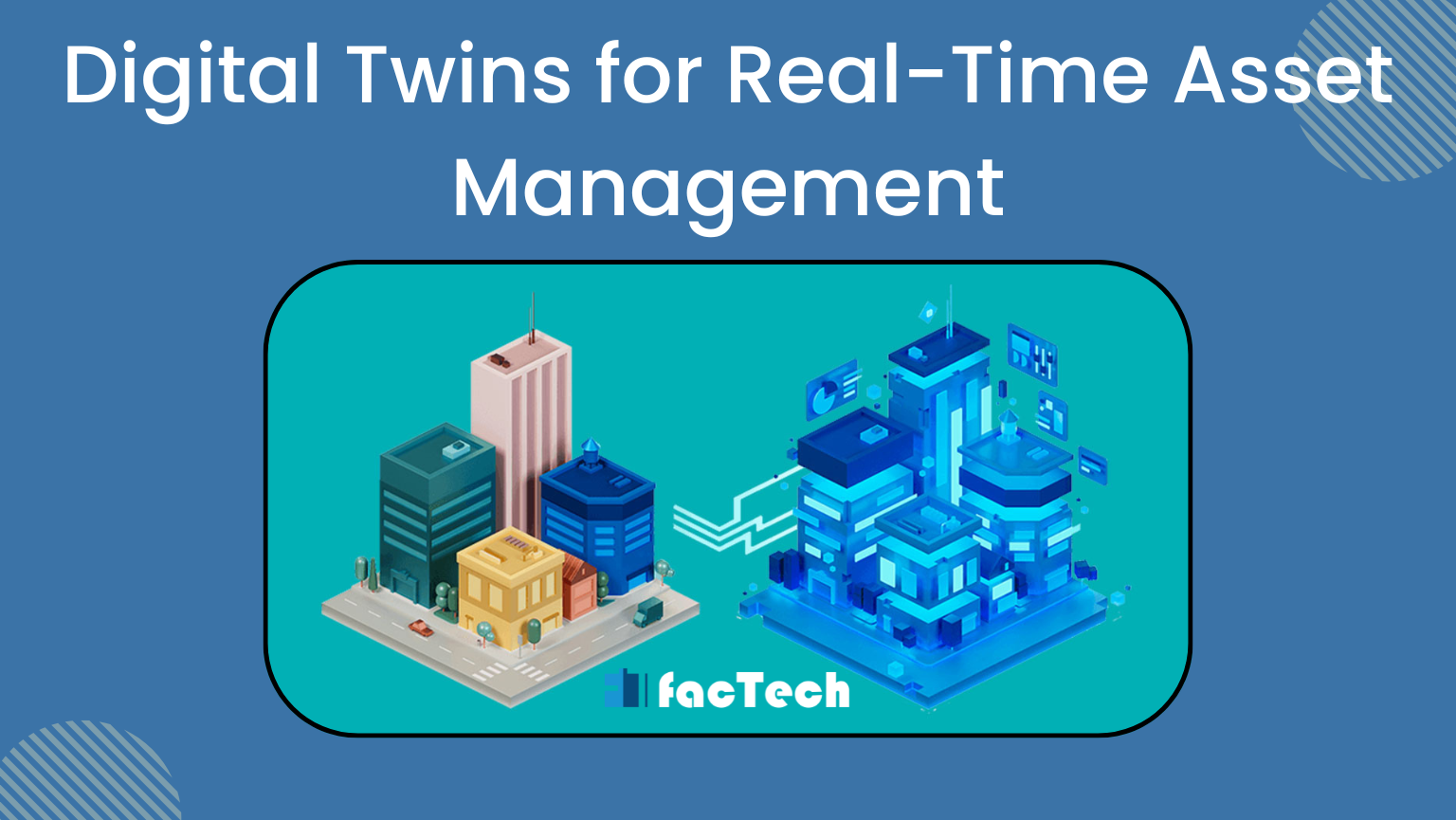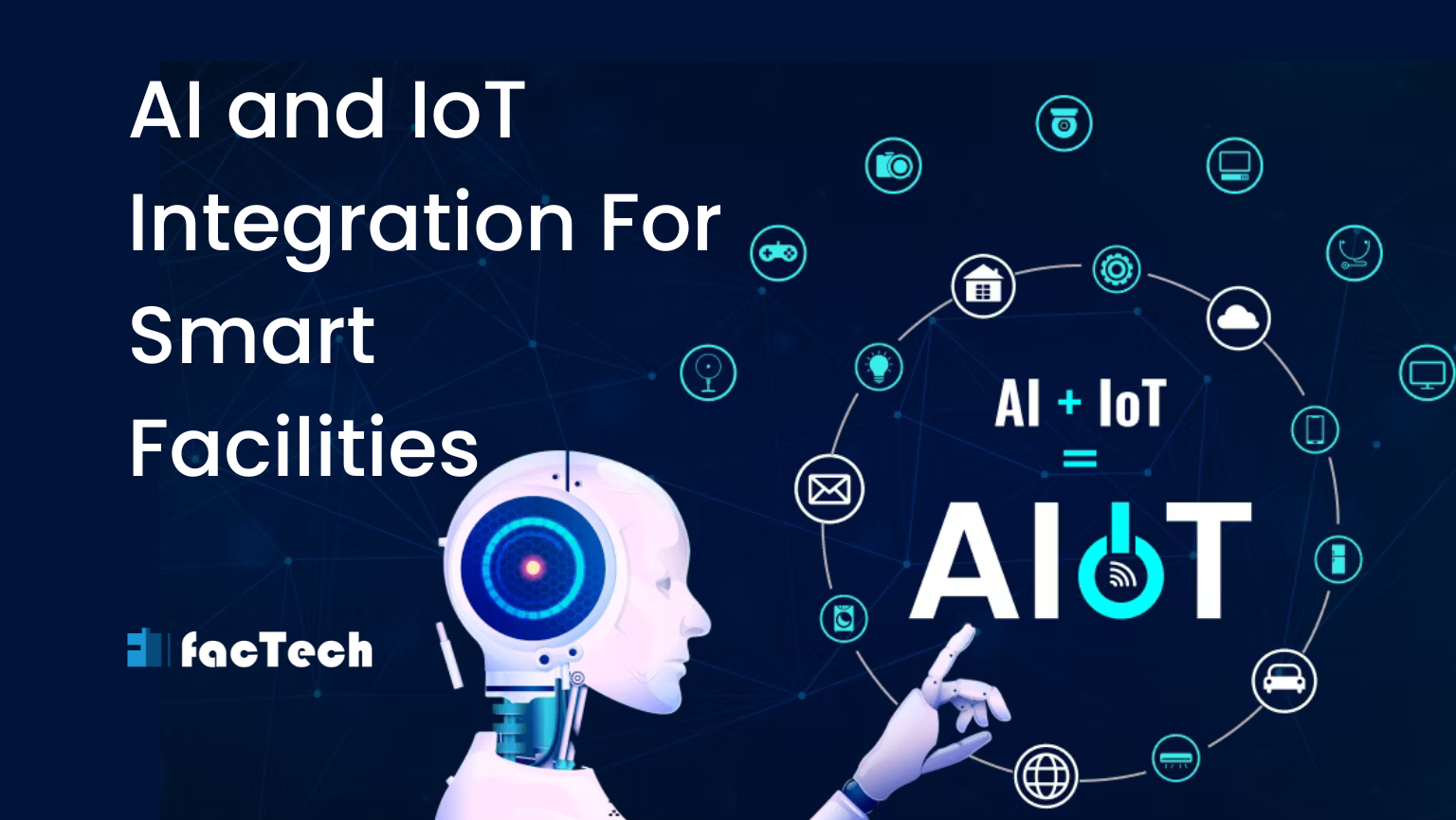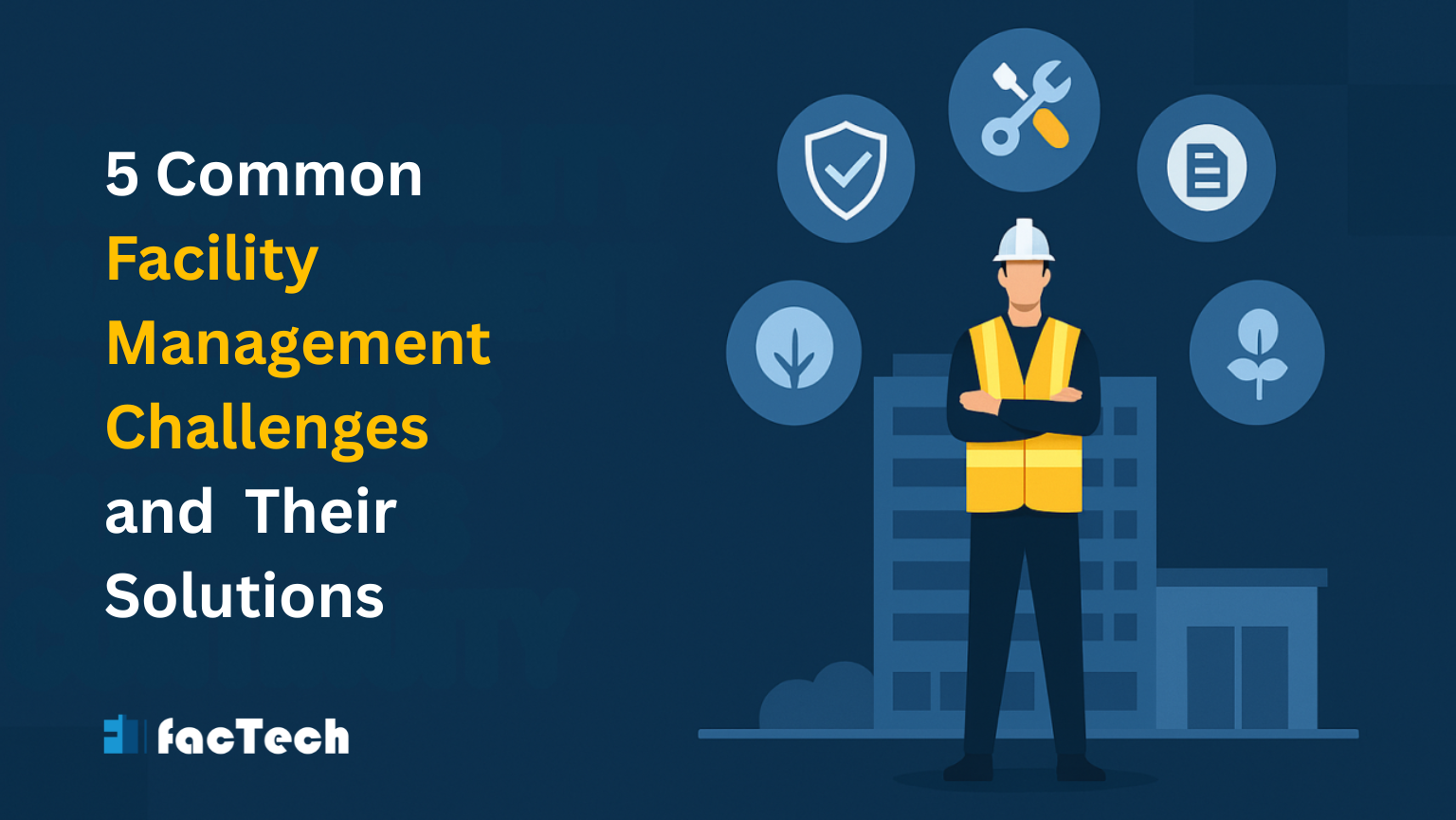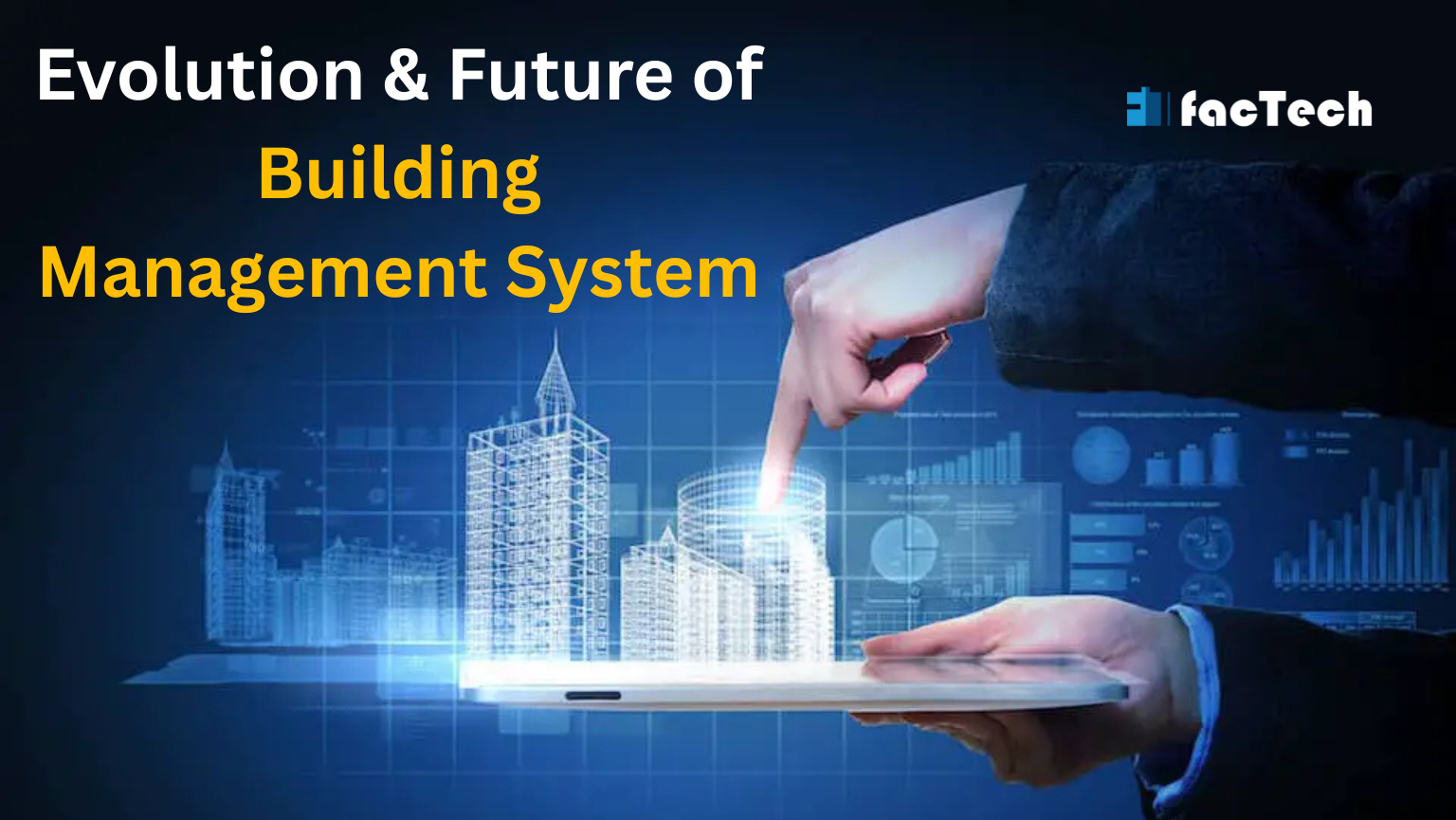5 Proptech Trends Revolutionizing The Real Estate Market in 2024
5 Proptech Trends Revolutionizing The Real Estate Market in 2024
The real estate industry is undergoing a digital transformation, with innovative technologies shaping how we buy, sell, and manage properties. These “proptech” trends are not just buzzwords – they are fundamentally changing the landscape of the market in 2024 and beyond.
Let’s explore five key trends driving this revolution:
1. The Rise of AI and Machine Learning: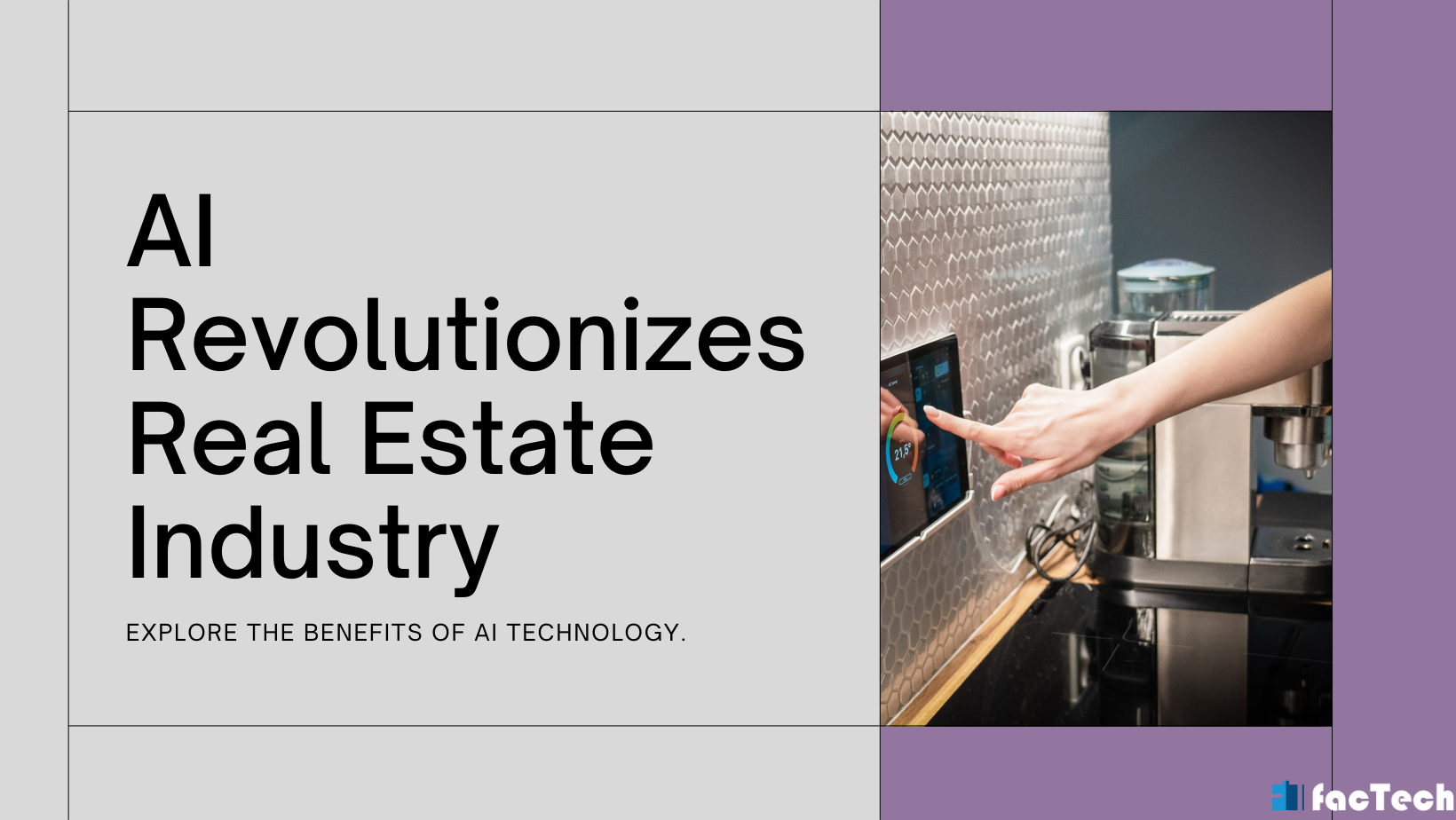
Artificial intelligence (AI) and machine learning (ML) are no longer science fiction in real estate. AI-powered chatbots can answer inquiries and automate tasks, while ML algorithms predict market trends, property values, and even maintenance needs. This empowers both buyers and sellers, offering personalized recommendations and streamlining the entire process.
Here are key points how AI and ML shapes real estate:
Smart and Personalized Search:
Gone are the days of endless scrolling through generic listings. AI and ML algorithms, analyzing user preferences and market trends, are personalizing search experiences. Imagine systems recommending properties that not only fit your budget and location needs but also cater to your lifestyle preferences. This can save buyers and renters valuable time and effort, leading to a more seamless search process.
 AI-powered Chatbots and Virtual Assistants:
AI-powered Chatbots and Virtual Assistants:
Long hold times and unanswered emails are becoming a thing of the past. AI-powered chatbots and virtual assistants are now available 24/7 to answer questions, schedule viewings, and handle routine tasks for both buyers and sellers. These chatbots are constantly learning and evolving, offering increasingly sophisticated and personalized interactions, improving the overall customer experience.
Predictive Analytics and Market Insights:
AI and ML are revolutionizing data analysis in real estate. These tools can predict market trends, forecast property values( example, Real estate outlook 2024), and even identify potential risks and opportunities for investors and developers. This data-driven approach allows for informed decision-making, reducing financial uncertainties and unlocking new possibilities in the market.
Streamlined Property Management:
AI is becoming an invaluable tool for property managers, streamlining operations and improving efficiency. From automating rent collection and maintenance requests to using smart sensors for preventative maintenance, AI can free up valuable time and resources for managers, allowing them to focus on providing a better experience for tenants.
Automated Valuation Models (AVMs):
AI and ML are paving the way for more accurate and efficient property valuations. AVMs, powered by vast datasets and complex algorithms, can provide reliable estimates of a property’s value in real-time. This not only benefits homeowners and investors but also helps ensure transparency and fairness in the market.
While AI and ML hold immense potential for the real estate industry, it’s crucial to remember that these technologies are tools, not replacements. Human expertise, ethics, and judgment will continue to be essential in navigating the complexities of the real estate market. As we move forward, it’s important to harness the power of AI and ML responsibly, ensuring that these technologies contribute to a more efficient, inclusive, and sustainable future for the real estate industry.
2. Immersive Experiences with VR and AR:

Virtual Reality (VR) and Augmented Reality (AR) are bringing property viewings to life. Gone are the days of static photos and confusing floor plans. Today, potential buyers can virtually tour properties from anywhere in the world, experiencing spaces in a realistic and interactive way. AR can even help visualize furniture placement or potential renovations, aiding in decision-making.
Here’s how we can utilize VR and AR to reshape the real estate landscape:
Hyper-realistic Virtual Tours:
VR allows potential buyers and renters to step into immersive, 360-degree virtual tours of properties, feeling the space as if they were physically present. Imagine walking through a kitchen, virtually opening cabinets, and gauging the flow of a living room – all from the comfort of your couch. This technology not only saves time and resources but also fosters a deeper connection with the property, allowing for well-informed decisions.
AR-powered Home Staging and Design:
Empty properties can be uninspiring, making it difficult for potential buyers or renters to envision their potential. AR comes to the rescue, allowing users to virtually “stage” furniture and decor within a space. Imagine holding up your phone or tablet and seeing a virtual couch perfectly placed in the living room, or trying out different paint colors on the walls. This empowers individuals to personalize the space and imagine their future home, leading to faster decisions and increased engagement.
 Remote Property Management with VR:
Remote Property Management with VR:
Managing distant properties can be challenging, but VR is changing the game. Imagine a property manager wearing a VR headset and virtually inspecting a rental property, checking for maintenance needs and conducting virtual walkthroughs with tenants. This not only reduces travel costs and time but also allows for efficient and comprehensive property management, enhancing tenant satisfaction and improving operational efficiency.
Related read:
Collaborative VR Design and Construction:
The design and construction phases of real estate projects can be complex and involve multiple stakeholders. VR is fostering collaboration by creating shared virtual environments where architects, engineers, and investors can come together to discuss plans, visualize the final product, and make real-time changes. This immersive experience eliminates geographical barriers and fosters better communication, leading to efficient project development and reduced errors.
Interactive AR Property Showcases:
Marketing properties in a crowded market requires innovative strategies. AR can be used to create interactive property showcases. Imagine potential buyers pointing their phones at a property brochure and seeing a 3D model of the building pop up, or exploring interactive floor plans with additional information about each room. This engaging and informative approach captures attention, differentiates properties, and ultimately leads to a higher conversion rate.
These are just a few examples of how PropTech, powered by VR and AR, is revolutionizing the real estate market in 2024. As technology continues to evolve, we can expect even more innovative and immersive experiences that will reshape the way we interact with the world of property.
3. Frictionless Rental Management:

Proptech is transforming the rental experience for both tenants and landlords. AI-powered platforms can handle applications, automate rent collection, and address maintenance issues proactively. This not only saves on time and resources but also fosters a smoother and more efficient rental experience.
Let’s explore key proptech trends revolutionizing rental management in 2024:
Online Rent Payments and Automated Accounting:
Integrating online payment gateways allows tenants to conveniently pay rent electronically, eliminating the hassle of checks and late payments. Additionally, automated accounting software streamlines financial management by automatically handling rent collection, generating statements, and managing invoices.
Smart Contracts and Blockchain Technology:
Blockchain technology offers a secure and transparent platform for managing rental agreements. Smart contracts, self-executing contracts triggered by predefined conditions, can automate various aspects of the rental process, such as rent collection and security deposit return upon lease termination, creating a more efficient and secure experience for both parties.
Data-Driven Decision Making:
Proptech platforms collect and analyze vast amounts of data on rental market trends, tenant behavior, and property performance. This data empowers landlords to make informed decisions about pricing strategies, marketing efforts, and property maintenance, ultimately optimizing their rental operations.
These proptech trends are just a glimpse into the future of frictionless rental management. As technology continues to evolve, we can expect even more innovative solutions that will transform the way we rent and manage properties, creating a win-win situation for both landlords and tenants.
4. Blockchain for Secure Transactions:
Blockchain technology offers exciting possibilities for real estate transactions. It can streamline workflows by creating a secure and transparent digital ledger for property ownership records. This can improve efficiency, reduce fraud, and simplify compliance processes.
Here are key PropTech trends shaping the market, with a focus on how blockchain is driving secure transactions:
Blockchain for Secure and Streamlined Transactions:
Traditionally, real estate transactions involve a complex web of paperwork and intermediaries. Blockchain technology is changing this by creating a secure, tamper-proof digital ledger for recording property ownership, titles, and transaction history. This eliminates the risk of fraud, expedites the closing process, and reduces reliance on third parties. Imagine a future where smart contracts automatically handle escrow and transfer ownership upon completion of agreed-upon terms, all on a secure blockchain platform.
Collaborative Platforms and Shared Economy Models:
PropTech is fostering the growth of collaborative platforms that connect property owners, renters, and service providers. These platforms streamline communication, automate tasks, and facilitate a more flexible approach to real estate. The shared economy is also thriving, with platforms offering fractional ownership, co-living arrangements, and peer-to-peer rentals.
These PropTech trends, particularly blockchain’s secure transaction capabilities, are revolutionizing the real estate market. As these technologies continue to evolve, we can expect a future with faster, more efficient, and more transparent experiences for everyone involved in the industry.
5. Smart Homes and the Internet of Things (IoT):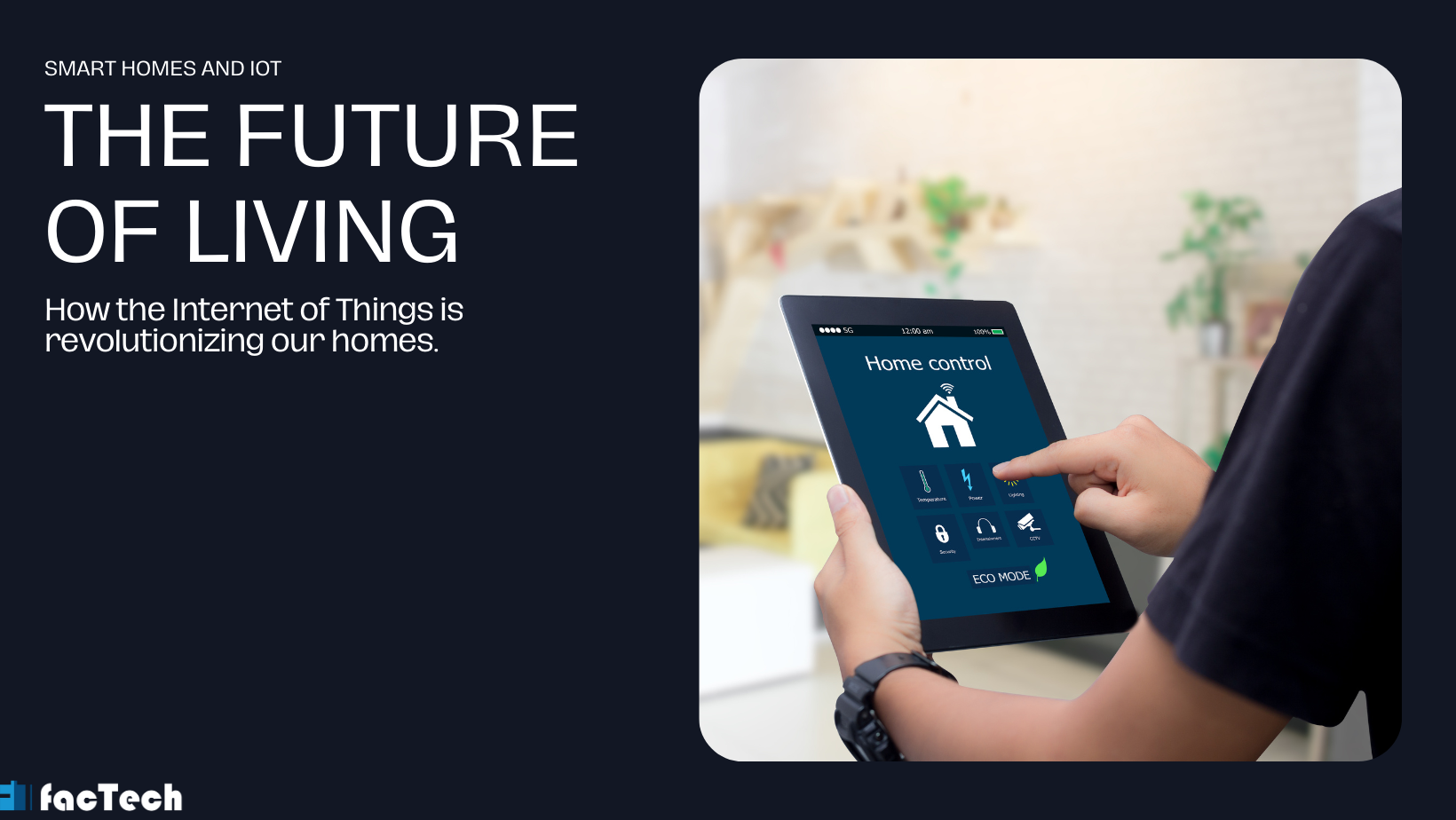
The integration of smart home technology and the Internet of Things (IoT) is changing the way we live and manage properties. From automated temperature control to security systems, these innovations offer not only greater convenience for occupants but also valuable data insights for landlords and property managers, allowing for optimized energy usage and preventive maintenance.
Here are five PropTech trends revolutionizing the market through these interconnected technologies:
Enhanced Security and Automation:
PropTech companies are integrating IoT devices and AI-powered security systems into homes, offering features like remote door locking, intruder detection, and automated lighting that simulates occupancy while away. This not only increases security but also allows homeowners to control their properties remotely, enhancing convenience and peace of mind.
Personalized Comfort and Efficiency:
Smart thermostats and connected appliances learn user preferences and adjust settings automatically for optimal comfort and energy efficiency. Integration with weather data can further optimize energy usage, leading to cost savings and a reduced environmental footprint.
Streamlined Property Management and Transactions:
PropTech platforms are integrating with smart home systems, allowing real estate agents and property managers to virtually access and showcase properties. This facilitates remote tours, streamlines maintenance requests, and offers potential buyers and renters a more immersive and interactive experience.
Evolving Living Experiences and Data-Driven Insights:
As smart home technology matures, we can expect even more innovative applications. Integration with health devices, personalized entertainment systems, and voice-activated controls are just a few possibilities. Furthermore, the data collected from these systems can provide valuable insights into user behavior and preferences, allowing for the development of even more tailored and enriching living experiences.
These PropTech trends, powered by smart homes and IoT, are not just futuristic concepts; they are actively shaping the real estate market in 2024. As technology continues to evolve, we can expect even more exciting advancements that will redefine the way we interact with our living spaces and navigate the real estate landscape.
Conclusion
The real estate market is undergoing a significant transformation driven by innovative proptech trends. From AI-powered property management to immersive virtual tours, these advancements are enhancing efficiency, transparency, and accessibility for all stakeholders. As proptech continues to evolve, we can expect even more exciting developments that will reshape the way we experience and interact with the real estate landscape in the years to come.
